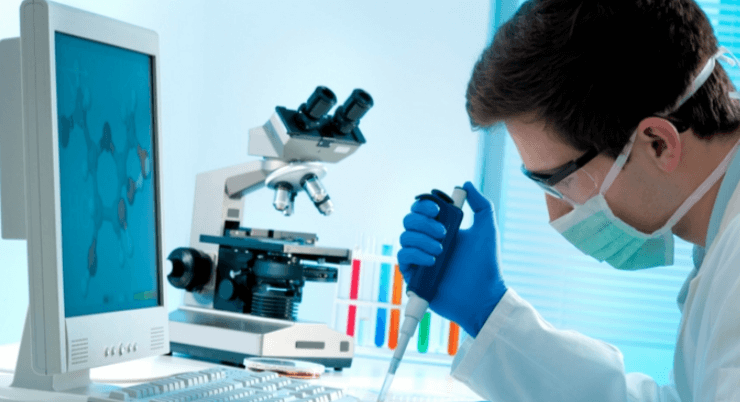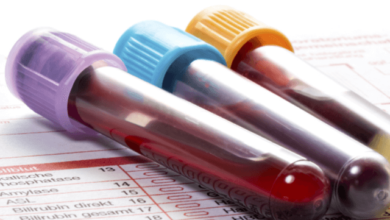The Benefits of Professional Laboratory Services

Professional laboratory services are integral to numerous fields, including healthcare, pharmaceuticals, environmental science, and industrial manufacturing. These services provide the expertise, technology, and accuracy needed to conduct complex analyses, diagnostics, and research. Whether for routine testing or groundbreaking research, professional laboratory services offer a multitude of benefits that contribute to the advancement of science, safety, and health. This article delves into the various advantages of utilizing professional laboratory services, highlighting their critical role in different sectors.
Ensuring Accurate and Reliable Results
One of the primary benefits of professional laboratory services is the accuracy and reliability of the results they provide. Laboratories equipped with state-of-the-art technology and staffed by skilled professionals can perform precise analyses, minimizing the risk of errors. Accuracy in laboratory testing is crucial, particularly in fields such as healthcare and pharmaceuticals, where incorrect results can lead to misdiagnosis, ineffective treatments, and even fatal consequences.
Professional laboratories adhere to stringent quality control measures and standardized procedures, ensuring that every test or analysis is performed correctly. This commitment to accuracy not only ensures reliable results but also enhances the credibility and trustworthiness of the findings.
Advanced Technology and Expertise
Professional laboratories are equipped with the latest technology and advanced instrumentation, enabling them to perform sophisticated tests and analyses that are beyond the capabilities of standard facilities. These advanced tools allow for the detection and measurement of substances at minute levels, providing detailed insights that are essential for research and development.
In addition to cutting-edge equipment, professional laboratories employ highly trained and experienced personnel, including scientists, technicians, and researchers. This expertise ensures that complex procedures are conducted correctly and that the data generated is interpreted accurately. The combination of advanced technology and expert knowledge makes professional laboratory services invaluable for industries that require high levels of precision and specialization.
Supporting Research and Development
Research and development (R&D) are critical to innovation in many industries, including pharmaceuticals, biotechnology, and environmental science. Professional laboratory services play a vital role in supporting R&D by providing the infrastructure and expertise needed to conduct high-quality research.
These laboratories can perform a wide range of tests and analyses, from chemical and biological assays to environmental monitoring and materials testing. The data generated from these tests can be used to develop new products, improve existing ones, and contribute to scientific knowledge.
Moreover, professional laboratories often collaborate with universities, research institutions, and private companies to drive innovation. Their ability to conduct complex experiments and provide accurate data is essential for advancing research and bringing new technologies and treatments to market.
Compliance with Regulatory Standards
In industries such as healthcare, food production, and environmental protection, compliance with regulatory standards is not only necessary but mandatory. Professional laboratory services ensure that testing and analysis are conducted in accordance with national and international regulations.
These laboratories are typically accredited by recognized bodies, which means they adhere to the highest standards of quality and competence. This accreditation is crucial for businesses that need to meet regulatory requirements, as it provides assurance that their products and processes comply with legal and safety standards.
For example, in the pharmaceutical industry, professional laboratories perform the rigorous testing required for drug approval, ensuring that new medications are safe and effective before they reach the market. Similarly, environmental laboratories conduct testing to ensure that air, water, and soil meet environmental standards, protecting public health and the environment.
Enhancing Public Health and Safety
Professional laboratory services are essential in protecting public health and safety. In healthcare, these laboratories conduct diagnostic tests that are critical for the detection, monitoring, and treatment of diseases. Accurate and timely laboratory results are vital for effective patient care, enabling healthcare providers to make informed decisions about diagnosis and treatment.
In addition to healthcare, professional laboratories contribute to public safety in other areas, such as food safety and environmental monitoring. Food laboratories test for contaminants and pathogens that could pose a risk to consumers, ensuring that food products are safe for consumption. Environmental laboratories monitor pollutants in air, water, and soil, helping to prevent environmental hazards that could harm communities.
By providing reliable data and analysis, professional laboratories play a crucial role in safeguarding public health and safety, preventing illness, and protecting the environment.
Streamlining Operations and Efficiency
For many businesses, outsourcing laboratory services to professional facilities can significantly streamline operations and improve efficiency. Instead of investing in expensive laboratory equipment and training staff to conduct specialized tests, companies can rely on external laboratories to provide these services.
This approach not only reduces costs but also allows businesses to focus on their core activities while benefiting from the expertise and technology of professional laboratories. Additionally, outsourcing laboratory services can accelerate the testing process, as professional laboratories often have the capacity to handle large volumes of samples quickly and efficiently.
For example, in the pharmaceutical industry, outsourcing certain laboratory tasks to professional labs can expedite the drug development process, allowing companies to bring new treatments to market faster. Similarly, manufacturing companies can benefit from faster turnaround times for quality control testing, ensuring that products meet specifications and are released to market on time.
Customization and Flexibility in Testing
Professional laboratory services offer a high degree of customization and flexibility, allowing clients to tailor testing to their specific needs. Whether it’s developing a new testing protocol, modifying an existing one, or conducting unique analyses, professional laboratories can accommodate a wide range of requirements.
This flexibility is particularly valuable in research and development, where standardized tests may not always be suitable. Professional laboratories can work with clients to design experiments and tests that address specific research questions or product development goals. This level of customization ensures that clients receive relevant and actionable data that supports their objectives.
Furthermore, professional laboratories can adapt to changing needs and priorities, providing ongoing support as projects evolve. This adaptability makes them an essential partner for businesses and institutions engaged in continuous research, development, and innovation.
Access to Specialized Services
Another significant benefit of professional laboratory services is access to specialized tests and analyses that may not be available in-house. These services can range from genetic testing and molecular diagnostics to advanced materials analysis and environmental testing.
Specialized laboratories have the necessary equipment and expertise to perform these complex tests, which are often required for cutting-edge research, diagnostics, or quality control. For instance, in the field of genomics, professional laboratories can conduct next-generation sequencing (NGS) to identify genetic mutations associated with diseases. In the materials science industry, laboratories can analyze the composition and properties of new materials to determine their suitability for specific applications.
By outsourcing to professional laboratories, businesses and researchers gain access to these specialized services without the need to invest in expensive equipment or training. This access to expertise and technology can be a critical factor in the success of research projects or product development.
Contributing to Scientific and Medical Advancements
Professional laboratory services are at the forefront of scientific and medical advancements. By providing accurate and reliable data, these laboratories support research that leads to new discoveries, treatments, and technologies.
In the medical field, professional laboratories contribute to the development of new diagnostics, therapies, and vaccines that improve patient outcomes and save lives. For example, during the COVID-19 pandemic, laboratories played a crucial role in developing and validating diagnostic tests, as well as conducting research on the virus and potential treatments.
In the environmental sciences, laboratories provide the data needed to understand and address global challenges such as climate change, pollution, and biodiversity loss. Their work helps inform policies and strategies that protect the environment and ensure sustainable development.
Overall, the contributions of professional laboratory services to scientific and medical advancements are vast and far-reaching, impacting society in numerous positive ways.
Cost-Effectiveness and Resource Optimization
While professional laboratory services may seem like a significant investment, they are often more cost-effective in the long run. By outsourcing laboratory testing and analysis, businesses can avoid the high costs associated with setting up and maintaining an in-house laboratory.
These costs include purchasing and maintaining equipment, hiring and training staff, and ensuring compliance with regulatory standards. In contrast, professional laboratories spread these costs across multiple clients, making their services more affordable.
Moreover, by leveraging the expertise and efficiency of professional laboratories, businesses can optimize their resources and focus on their core activities. This resource optimization not only improves overall efficiency but also enhances the ability to innovate and stay competitive in the market.
Meeting Industry-Specific Needs
Different industries have unique testing and analysis requirements, and professional laboratory services are well-equipped to meet these needs. Whether it’s conducting stability testing for pharmaceuticals, analyzing contaminants in food products, or assessing the performance of new materials, professional laboratories offer industry-specific solutions.
These laboratories are familiar with the regulatory requirements and standards that apply to different industries, ensuring that all testing is compliant and reliable. For example, in the food industry, laboratories conduct microbiological and chemical testing to ensure that products are safe and meet regulatory standards. In the automotive industry, materials testing is essential for ensuring the safety and durability of vehicle components.
By offering tailored services that meet industry-specific needs, professional laboratories help businesses maintain quality, compliance, and safety standards, which are critical for success in any sector.
Enhancing Product Development and Quality Control
In the competitive landscape of product development, ensuring quality and safety is paramount. Professional laboratory services play a critical role in product development and quality control by providing accurate testing and analysis that informs decision-making.
During the product development phase, laboratories conduct tests to evaluate the safety, efficacy, and performance of new products. This data is essential for refining product designs, meeting regulatory requirements, and ensuring that the final product is market-ready.
In quality control, professional laboratories perform routine testing to verify that products meet specifications and standards. This testing helps identify any issues early in the production process, reducing the risk of defective products reaching the market and protecting the company’s reputation.
The ability to consistently produce high-quality products is a key competitive advantage, and professional laboratory services are essential for achieving this goal.
Facilitating Environmental and Public Health Initiatives
Environmental protection and public health are areas where professional laboratory services make significant contributions. Laboratories conduct tests and analyses that are essential for monitoring environmental conditions, assessing pollution levels, and ensuring compliance with environmental regulations.
For instance, laboratories test air and water samples for contaminants that could harm public health. They also analyze soil samples to detect pollutants that could affect agriculture or wildlife. This data is critical for government agencies, environmental organizations, and industries to make informed decisions and implement effective policies.
In public health, laboratories play a key role in disease surveillance, outbreak investigation, and the development of public health strategies. By providing accurate and timely data, professional laboratories help protect communities from environmental hazards and public health threats.
FAQs
What are professional laboratory services? Professional laboratory services involve specialized testing, analysis, and research conducted by accredited laboratories. These services are used in various industries, including healthcare, pharmaceuticals, environmental science, and manufacturing.
Why is accuracy important in laboratory testing? Accuracy in laboratory testing is crucial because it ensures reliable results that are essential for making informed decisions in healthcare, research, and product development. Inaccurate results can lead to misdiagnosis, ineffective treatments, and unsafe products.
How do professional laboratories support research and development? Professional laboratories support research and development by providing the expertise, technology, and infrastructure needed to conduct high-quality research. They perform a wide range of tests and analyses that contribute to scientific knowledge and innovation.
What role do laboratories play in regulatory compliance? Laboratories ensure that testing and analysis are conducted in accordance with regulatory standards, helping businesses comply with legal and safety requirements. This is essential in industries such as healthcare, food production, and environmental protection.
How do professional laboratory services enhance product development? Professional laboratories contribute to product development by conducting tests that evaluate the safety, efficacy, and performance of new products. This data informs decision-making and ensures that products are market-ready.
What are the benefits of outsourcing laboratory services? Outsourcing laboratory services to professional facilities can reduce costs, streamline operations, and provide access to specialized expertise and advanced technology. It also allows businesses to focus on their core activities while benefiting from high-quality testing and analysis.
Conclusion
Professional laboratory services offer a wide array of benefits across multiple industries, from ensuring accuracy and reliability in testing to supporting research, development, and innovation. These services play a crucial role in advancing scientific knowledge, protecting public health, and ensuring the safety and quality of products and processes. By leveraging the expertise, technology, and resources of professional laboratories, businesses and institutions can achieve their goals more efficiently and effectively, driving progress and innovation in their respective fields. Whether you’re involved in healthcare, environmental science, manufacturing, or any other industry, professional laboratory services are an invaluable asset that can help you meet regulatory standards, enhance product development, and contribute to a safer and healthier world.





